DENTAL BRIDGES
Dental bridges are a popular restorative dental treatment that addresses the issue of missing teeth, offering a reliable solution to restore both function and aesthetics to the smile. In Turkey, dental bridges are widely available, with numerous clinics offering advanced techniques and high-quality materials to ensure optimal results for patients.
This article will explore the various aspects of dental bridges in Turkey, including their types, benefits, procedure, and frequently asked questions, providing valuable information for those considering this treatment option.
We provide the exceptional service we’d want to experience ourselves!
Get offers for dental treatment prices in turkey
BEFORE&AFTER PHOTOS
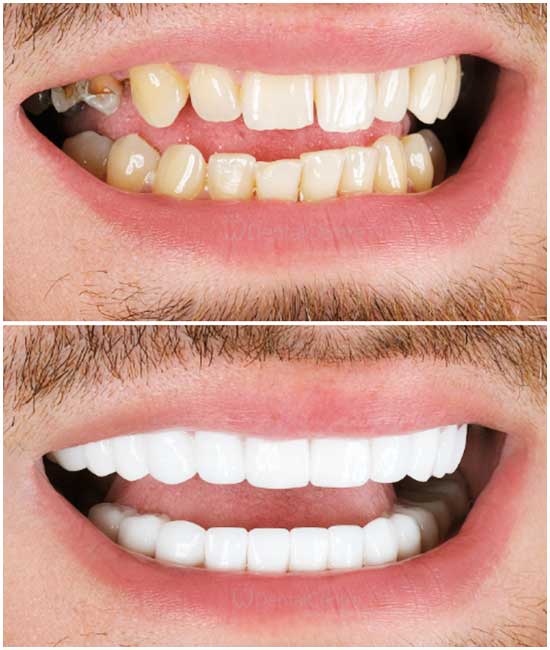
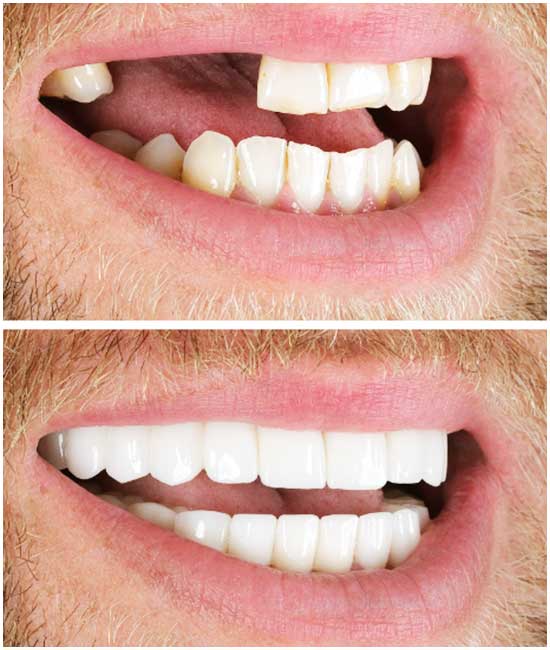
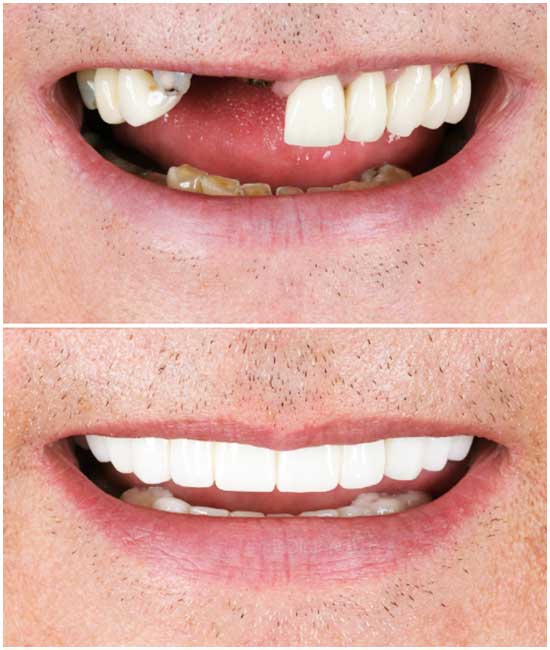
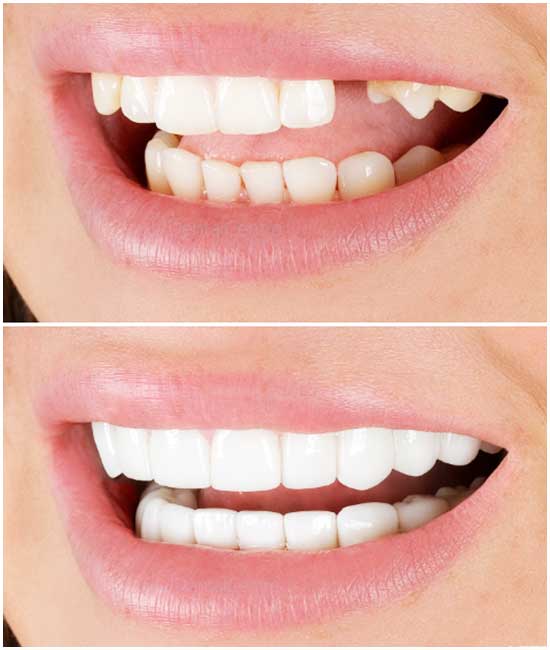
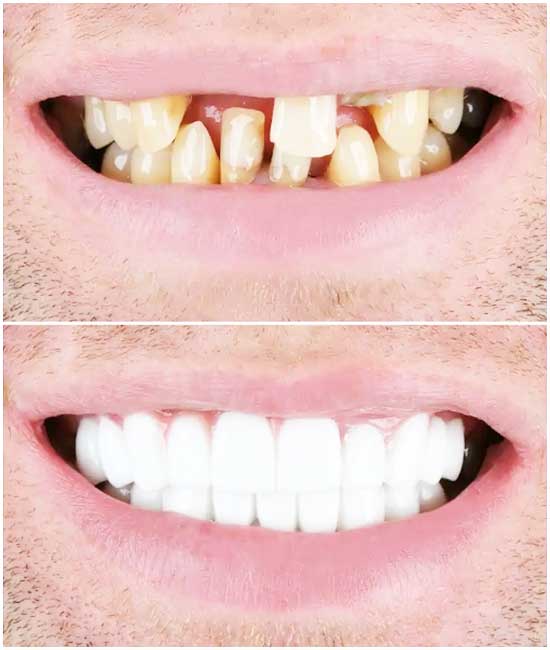
Types of Dental Bridges in Turkey
In Turkey, various types of dental bridges are offered to address different dental needs and preferences. These include:
- Traditional Dental Bridges: This type of bridge consists of one or more artificial teeth (pontics) anchored to adjacent natural teeth, which serve as abutments. Traditional bridges are suitable when there are healthy teeth on both sides of the gap created by missing teeth.
- Cantilever Bridges: Cantilever bridges are similar to traditional bridges but are anchored to only one natural tooth adjacent to the gap. While less common, they may be used when there’s only one healthy adjacent tooth available for support.
- Maryland Bonded Bridges: Also known as resin-bonded bridges or Maryland bridges, these consist of artificial teeth bonded to adjacent natural teeth using a metal or porcelain framework. They are a minimally invasive option suitable for replacing front teeth.
- Implant-Supported Bridges: Implant-supported bridges are secured in place by dental implants surgically placed into the jawbone. These bridges provide excellent stability and prevent bone loss in the jaw.
Each type of dental bridge has its advantages and considerations, and your dentist in Turkey can help determine the most suitable option based on your specific dental condition and treatment goals.
Installing a Dental Bridge in Turkey
Steps for Installing a Dental Bridge in Turkey
- Consultation: The process begins with a thorough consultation with your dentist in Turkey. During this appointment, your dentist will assess your oral health, discuss your treatment goals, and determine if a dental bridge is the appropriate solution for you.
- Preparation: Once the decision is made to proceed with a dental bridge, the adjacent teeth (abutment teeth) will be prepared. This involves reshaping these teeth to create space for the dental crowns that will anchor the bridge.
- Impressions: After the abutment teeth are prepared, impressions of your teeth and gums are taken. These impressions are used to create a custom-made dental bridge that fits perfectly in your mouth.
- Temporary Bridge: While your permanent bridge is being fabricated by the dental laboratory, your dentist may place a temporary bridge to protect your prepared teeth and maintain aesthetics.
- Bridge Fitting: Once your permanent bridge is ready, you will return to the dental clinic for the fitting. Your dentist will check the fit, shape, and colour of the bridge to ensure it meets your expectations.
- Final Adjustment: If necessary, minor adjustments may be made to the bridge to ensure proper fit and comfort. Your dentist will also check your bite to ensure that it aligns correctly with the new bridge.
- Bonding: Once you and your dentist are satisfied with the fit and appearance of the bridge, it will be permanently bonded into place using dental cement.
- Aftercare Instructions: Your dentist will provide you with instructions on how to care for your new dental bridge, including proper oral hygiene practices and dietary recommendations to maintain its longevity.
By following these steps and attending regular dental check-ups, you can enjoy the benefits of a dental bridge in Turkey, restoring your smile and improving your oral health.